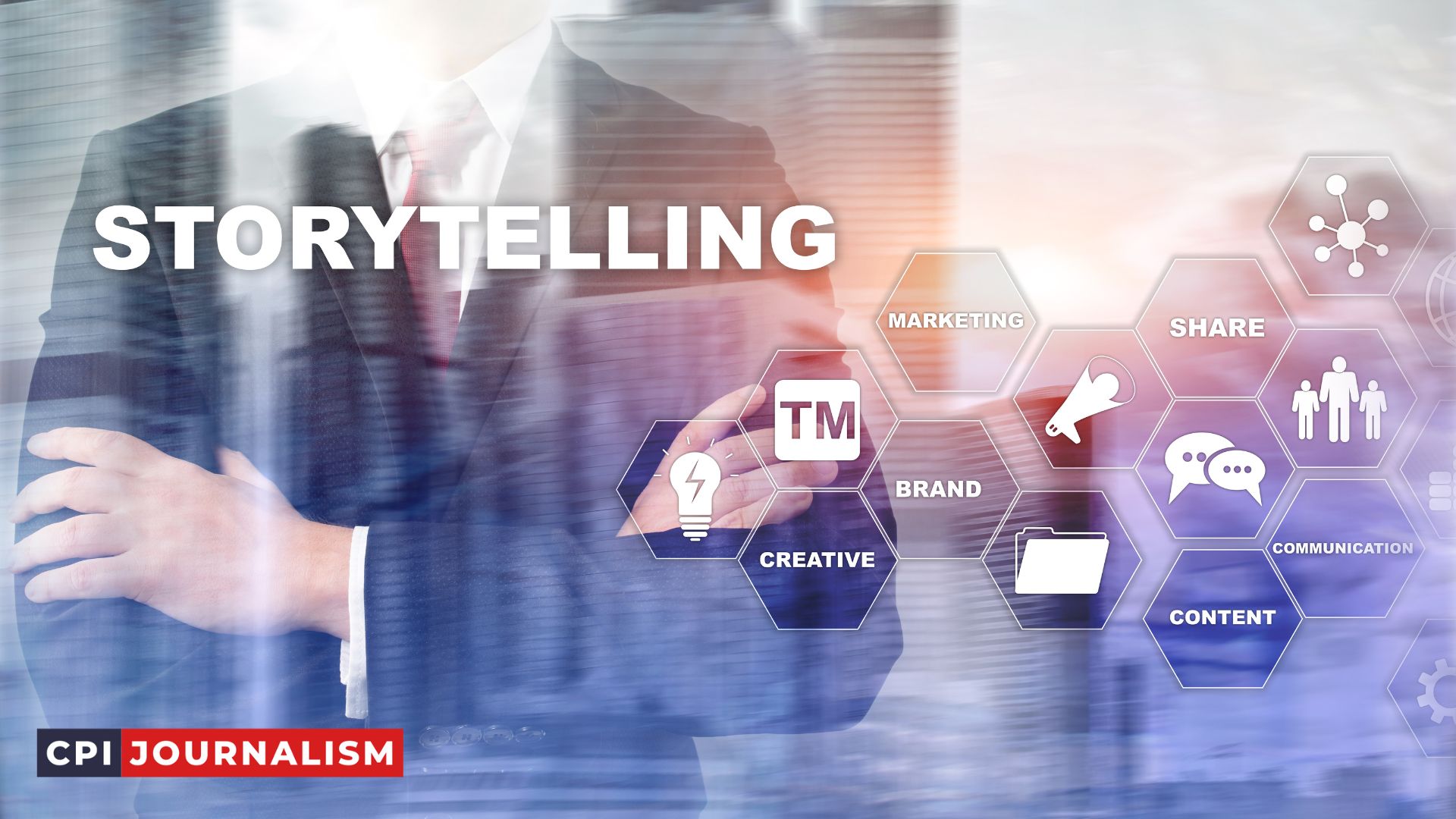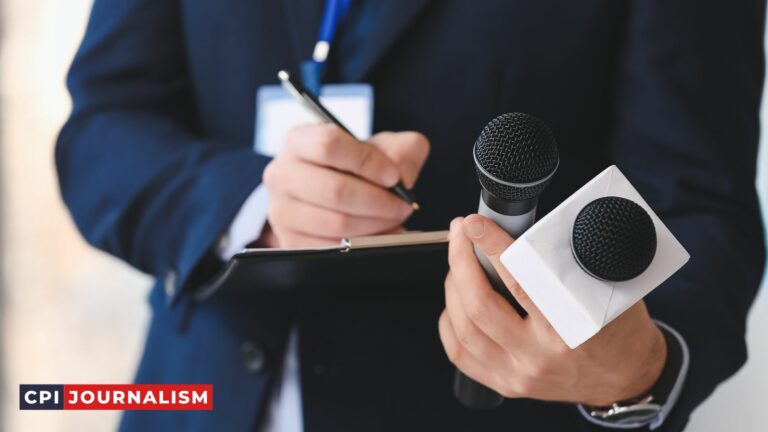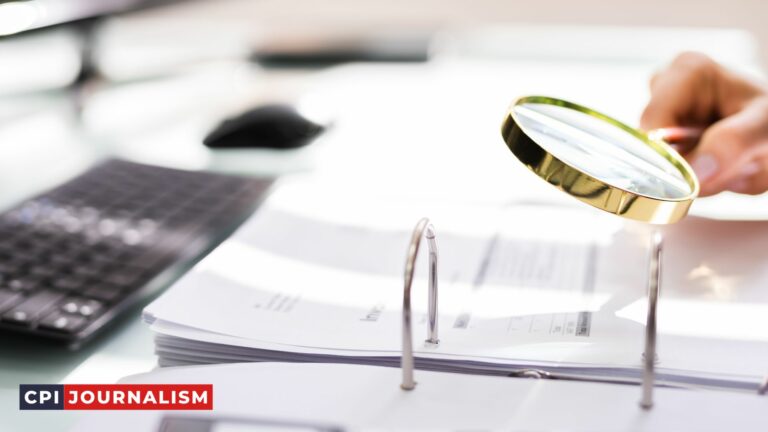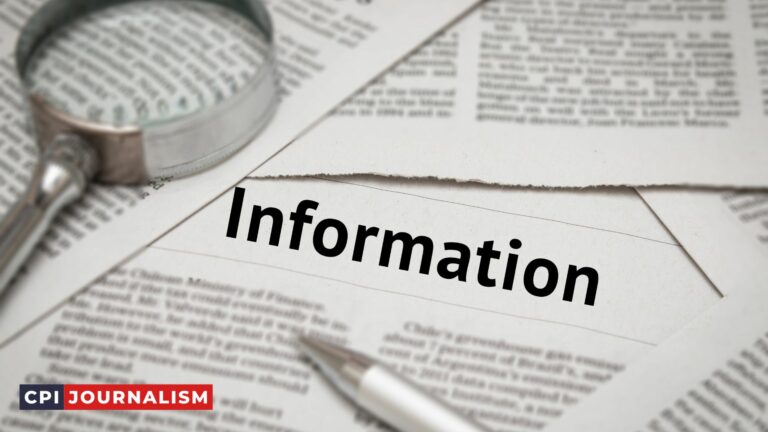How Do Journalists Approach Storytelling And Writing In Investigative Reports?
As an experienced journalist, I am here to share my knowledge and expertise on how to approach storytelling and writing in investigative reports.
Investigative reporting is an important form of journalism which is used to uncover information that is often hidden, difficult to access, or otherwise unknown.
Through my years of experience, I have learned the keys to effective storytelling and writing when it comes to investigative reporting.
In this article, I will explain the importance of gathering accurate information and the various techniques used to craft compelling stories.
I will also provide tips on how to effectively communicate research findings and create a compelling narrative for readers. Finally, I will discuss the importance of ethical considerations when conducting investigative reporting.
I hope that this article will serve as a useful guide for upcoming journalists who are interested in investigative reporting.
A. Research and Fact-Finding
As an investigative journalist, research and fact-finding are essential components of the storytelling process.
Before you begin writing your story, you must undertake a thorough investigation of the facts and develop a comprehensive understanding of the subject matter.
This is key to ensuring the accuracy of your reporting and ensuring that you have all the necessary elements to craft a compelling narrative.
The research process can involve a variety of methods, including interviews, data analysis, document searches, and field research.
It is important to approach this part of the process with rigor, as it will ultimately shape the direction and tone of your investigative report.
Interviews are a key part of fact-finding for investigative journalism. When interviewing a source, it is important to be mindful of the power dynamics at play.
Make sure to ask open-ended questions and stay away from leading questions that could influence the answer. It is also important to be aware of any biases you may have in your approach, as this could influence the accuracy of the source’s responses.
Data analysis is another important tool for investigative journalism. By carefully analyzing data, it can be possible to uncover patterns and trends that may not be obvious at first glance.
For example, mining a large data set can uncover correlations that could be used to investigate a particular issue or story.
Document searches can also be a useful tool for investigative journalism. By searching through public records, court documents, and other sources, you can uncover valuable information that may otherwise be difficult to uncover.
Finally, field research is an important part of the investigative process. By talking to people in the community and visiting the area in question, you can gain a more nuanced understanding of the situation. This can help to provide valuable context and further inform your investigative report.
In conclusion, research and fact-finding are essential components of investigative journalism. By taking the time to properly investigate the facts and develop a comprehensive understanding of the subject matter, you can ensure the accuracy of your reporting and craft a compelling narrative.
1. Interviews
Interviews are an essential part of investigative journalism. They provide first-hand information and unique perspectives that are not available elsewhere.
As an experienced investigative journalist, I have found that interviews are a great way to get the story, as long as the right questions are asked.
When conducting an interview for an investigative report, it is important to establish the facts before jumping into the more detailed questions.
Ask the interviewee to provide background information about the topic, as well as their role in it. This will help to provide context and provide a starting point for the investigation.
Once the basics have been established, it is time to move on to the more detailed questions. These should be focused on the specific facts of the case. Ask questions that will help to uncover any information that is not readily available.
For example, if the investigation is about a company, ask about their finances, customer service, and any other relevant information.
Finally, it is important to make sure that the interview is conducted in an ethical manner. Make sure that the interviewee is not pressured into providing any information that they are not comfortable with. It is also important to ensure that the interviewee feels respected and that their privacy is respected.
By following these steps, interviews can be an effective tool to uncover the truth in investigative reports. With the right questions and a respectful attitude, interviews can provide crucial insight into the story.
2. Document Analysis
Document analysis is a vital part of investigative reporting, as it enables journalists to uncover the truth behind a story.
It includes gathering, analyzing, and interpreting documents, such as emails, memos, court records, and other official documents, to uncover facts, investigate leads, and gain insight into a topic or story.
When conducting document analysis, journalists should ask themselves the following questions: What documents are relevant? What do these documents tell us? What questions should I be asking? How can these documents be used to uncover the truth?
In order to answer these questions journalists must first identify and collect the relevant documents. This can be done by searching through public records, requesting documents from government agencies, or interviewing sources.
Once the documents have been identified, journalists should read them carefully and make notes of any key points or findings.
When analyzing the documents, journalists should look for inconsistencies, patterns, or other indicators that could reveal more information about the story.
Journalists should also consider the context in which the documents were created and what other documents may be related to them.
Finally, journalists should be prepared to ask questions and draw conclusions from the documents. This may require further research and interviews, but it can be invaluable in uncovering the truth and finding out what really happened.
Document analysis is a crucial part of investigative journalism, and it is important for journalists to take the time and effort to ensure that they are conducting thorough, accurate, and unbiased document analysis.
By doing so, they will be able to uncover the truth behind a story and provide their readers with an accurate account of the facts.
3. Data Analysis
Data analysis is an essential part of investigative reporting and storytelling. It is the process of looking for patterns and trends in data that can help journalists to draw meaningful conclusions from their research.
In investigative reporting, data analysis can be used to uncover new information, gain insight into a topic, or provide evidence to support a story.
Data analysis can be done using a variety of techniques, ranging from manual analysis to more sophisticated computer-assisted techniques. Manual techniques include reading and interpreting raw data, looking for patterns among variables, and identifying trends over time.
Computer-assisted techniques include data mining, statistical analysis, and machine learning. Each technique has its own strengths and weaknesses and should be used according to the needs of the story.
For investigative reporting, the goal of data analysis is to identify and explain the underlying story in the data. To do this, journalists must understand the data they are analyzing, how it was collected, and how to interpret it.
Journalists should also be aware of potential biases and errors that might be present in the data, and be prepared to explain any discrepancies.
Finally, journalists should be mindful of the ethical implications of their data analysis. As with any form of reporting, it is important to be transparent about how the data was collected, how it was analyzed, and what conclusions were drawn.
It is also important to ensure that accurate information is used to inform the story, and that any data that is used is not manipulated in any way.
B. Writing The Story
Writing an investigative report is a complex task, but the key to success is to tell a compelling story. It is essential to have a clear narrative structure that will capture and hold the reader’s attention.
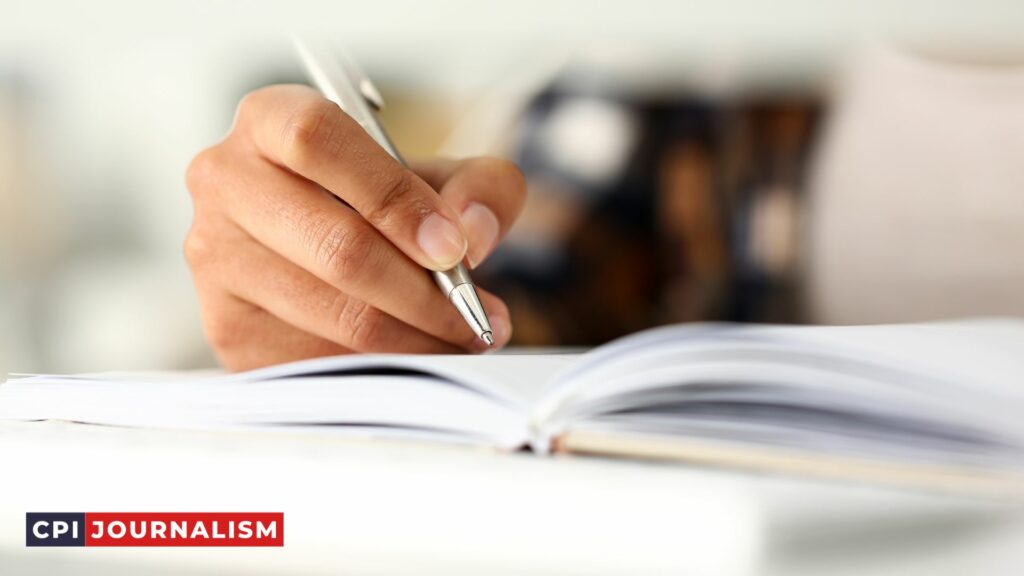
Here are some tips for crafting a compelling story:
1. Establish the Context: Before diving into the investigative report, it’s important to establish the context of the story.
This will help the reader understand the significance of the story and why it matters. Provide background information on the topic, the people involved, and any relevant historical facts.
2. Identify the Main Characters: Identifying the main characters in the story will help the reader connect with the story and invest in the outcome. Who are the people involved? What are their motivations? How do their actions shape the story?
3. Create a Plotline: A good plotline consists of a beginning, a middle and an end. Start with the introduction and provide an overview of the story. Develop the plot by providing relevant details and evidence. Finally, conclude with a resolution.
4. Use Quotes: Quotes are a powerful storytelling tool. They provide the reader with a direct window into the thoughts and feelings of the people involved. When possible, include quotes from primary sources.
5. Use Emotion: Investigative reports are often about people and their stories. To engage the reader, it’s important to evoke emotion. Use words, phrases and sentences that create a sense of empathy and understanding.
Writing an investigative report is a complex undertaking. By following these tips, you can craft a compelling story that will capture the reader’s attention and keep them engaged throughout the report. Good luck!
1. Structure
Writing an investigative report requires careful planning and structure in order to ensure that the story is effectively communicated to the reader. An investigative report should have a clear beginning, middle, and end that allows the reader to follow the story from start to finish.
The beginning of the story should introduce the readers to the issue at hand, setting the scene and providing context for the story that follows. This is followed by the middle of the story, which should provide the details of the investigation.
This could include interviews, research, evidence, and expert opinions. Finally, the story should come to a clear conclusion, summarizing the key findings and providing a meaningful resolution to the story.
It’s also important to consider the structure of each individual section within the story. Each section should start with a clear and concise introduction, followed by the body which should provide the necessary details and evidence, and finally a conclusion that wraps up the section and provides a summary of the key points.
By taking the time to structure an investigative report correctly, journalists can ensure that the story is effectively communicated to the reader. This is essential in investigative journalism, as it allows readers to understand the story and draw their own conclusions from the evidence presented.
2. Tone
When it comes to writing and storytelling for investigative reports, the tone of the story is of utmost importance. As an experienced journalist, I cannot stress enough the importance of finding the right tone for investigative reports, as it can make or break the story.
The tone of an investigative report should be authoritative, yet engaging. It should be professional, yet lighthearted. It should be convincing, yet honest. The goal is to be as factual as possible, while also creating an emotional connection with the reader.
In addition, the tone of an investigative report should be impartial and objective. The tone should not be biased or opinionated, as the goal is to present all sides of the story in an unbiased, unbiased way.
Finally, the tone of an investigative report should encourage the reader to continue reading and to stay informed. The goal is to ensure that the reader is engaged with the story, and that they remain informed and interested in the story.
Ultimately, the tone of an investigative report is a delicate balance between factual accuracy, impartiality and engagement. It is essential that journalists get the tone right in order to create a successful story.
3. Language
Journalists must take great care in how they tell the story of their investigative report. Language is a powerful tool that can be used to shape the narrative and create an emotional connection with the reader.
The language used in an investigative report should be precise and accurate. Clarity is key in communicating the facts of the story. A well-crafted sentence can be the difference between a story that is understood or one that is easily forgotten.
In addition to accuracy, journalists should use language that is easy to understand. Avoid jargon, technical terms, and dense phrases that may confuse or alienate readers. Using accessible language makes the story easier to comprehend and more enjoyable to read.
When writing for an emotional connection, words that evoke emotion are key. Words like “unfair”, “tragic”, or “heartbreaking” can draw readers in and give them a deeper understanding of the story.
Finally, it is important to use language that is inclusive. Pay attention to the words that are used and the pronouns that are employed. Make sure to avoid language that is exclusionary or offensive.
In short, the language used in an investigative report should be clear, concise, and inclusive. By taking the time to craft thoughtful sentences, journalists can create powerful stories that will engage and inspire readers.
4. Ethical Considerations
When writing an investigative report, journalists must keep ethical considerations at the forefront of their minds and ensure that their work is fair and accurate. Ethical considerations include the protection of sources, the avoidance of bias, and the commitment to accuracy and truth.
First and foremost, it is essential that journalists protect their sources and ensure that their identities remain confidential.
This is especially important when dealing with sensitive information or when a source’s safety may be compromised by their involvement in the story. It is also important to ensure that a source’s identity is not revealed without their consent, as this could have serious legal ramifications.
Second, it is important to avoid bias when writing an investigative report. Journalists must strive to remain objective and balanced in their reporting and must not let their own opinions or opinions of others affect their writing.
It is also important to ensure that stories are presented in an impartial manner and that all relevant facts and perspectives are included.
Finally, journalists must be committed to accuracy and truth when writing an investigative report. This means double-checking sources, fact-checking statements, and verifying information with multiple sources.
Additionally, it is important to ensure that stories are free from inaccuracies and that any claims made are backed up by evidence.
II. Challenges of Investigative Reporting
Investigative reporting is much more challenging than other forms of journalism due to the amount of research, analysis and fact-finding that is required. It can require substantial time and effort to uncover a story and may even lead to dangerous situations.
Here are some of the main challenges of investigative reporting:
1. Gaining Access: It can be difficult to gain access to the people, documents and other sources that are necessary for an investigative story. Journalists often need to build trust with their sources and be persistent in order to gain access.
2. Protecting Sources: Investigative reporters often rely on confidential sources. This means that they must take extra steps to protect the identity of their sources and ensure that the information remains confidential.
3. Verifying Information: Investigative reporters need to be able to verify the accuracy of all the information they uncover. This can require a great deal of research and fact-checking.
4. Legal Challenges: Investigative reporters may face legal challenges if they uncover information that is considered confidential or privileged. They must be aware of the laws and regulations that govern their reporting and take the necessary steps to protect themselves and their sources.
5. Potential Danger: Some investigative stories can lead to dangerous situations. Journalists must be aware of the potential risks and take the necessary precautions to protect themselves.
Investigative reporting can be an extremely rewarding and challenging form of journalism. It requires a great deal of research, analysis, fact-checking and perseverance in order to uncover a story.
Journalists must be aware of the potential challenges and take the necessary steps to protect themselves and their sources.
A. Access To Information
Access to information is a key element of investigative reporting. It is the most important step in uncovering a story and telling it effectively. Journalists must be persistent in their pursuit of the facts and be willing to go the extra mile to get the information they need.
The first step is to identify the sources of information. This may come from public records, interviews, leaked documents, confidential tips, or other sources. It is important to have a clear understanding of the type of information you are looking for and to be able to determine if it is reliable or not.
Once the sources of information are identified, journalists should be prepared to approach them in a respectful and professional manner. An effective journalist knows how to ask the right questions and build a rapport with their sources.
It is also important to be familiar with the laws and regulations governing access to public records and other information.
In addition to primary sources, journalists often rely on secondary sources such as books, newspapers and reports. These can provide a wealth of information and provide a foundation for further investigation. However, journalists must be careful to verify the accuracy of the information and not rely on it blindly.
Finally, journalists should not be afraid to take risks to get the story. This may include confronting powerful people and organizations or putting oneself in potentially dangerous situations.
It is important to remember that the truth is worth the risk and that the story must be told.
B. Time And Resources
When it comes to investigative reporting, time and resources are two of the most important elements of success. It takes a significant amount of time and effort to properly research and write a thorough investigative report.
The more time and resources you are able to dedicate to the process, the better the end result will be.
In terms of time, it is important to give yourself enough time to properly research and write the report. Depending on the story and the amount of information available, it can take anywhere from a few days to weeks or even months to complete a thorough investigative report.
It is important to set realistic deadlines and to stick to them, as this will ensure that you are able to provide a comprehensive and accurate report.
In terms of resources, it is important to have access to the right information and materials. This can include access to primary source documents and interviews, as well as access to other pertinent information such as public records and documents.
Additionally, it is important to have access to the right people, including sources and experts who can provide valuable insight into the story.
Investigative reporting is a time-consuming and resource-intensive endeavor. As a journalist, it is important to ensure that you have the necessary time and resources to complete an accurate and comprehensive report. When it comes to investigative journalism, time and resources are essential.
C. Legal Issues
When it comes to investigative reporting, legal issues must always be taken into consideration. Journalists must be aware of the legal requirements for gathering information and protecting sources. Additionally, journalists should be aware of libel laws and the possibility of a lawsuit.
When gathering information for an investigative report, it is important to ensure that the information was gathered legally. Journalists should not break any laws when gathering information and should always ensure that any sources are protected from legal repercussions.
When writing an investigative report, it is important to be aware of libel laws. Libel laws protect individuals or entities from having false and damaging information published about them.
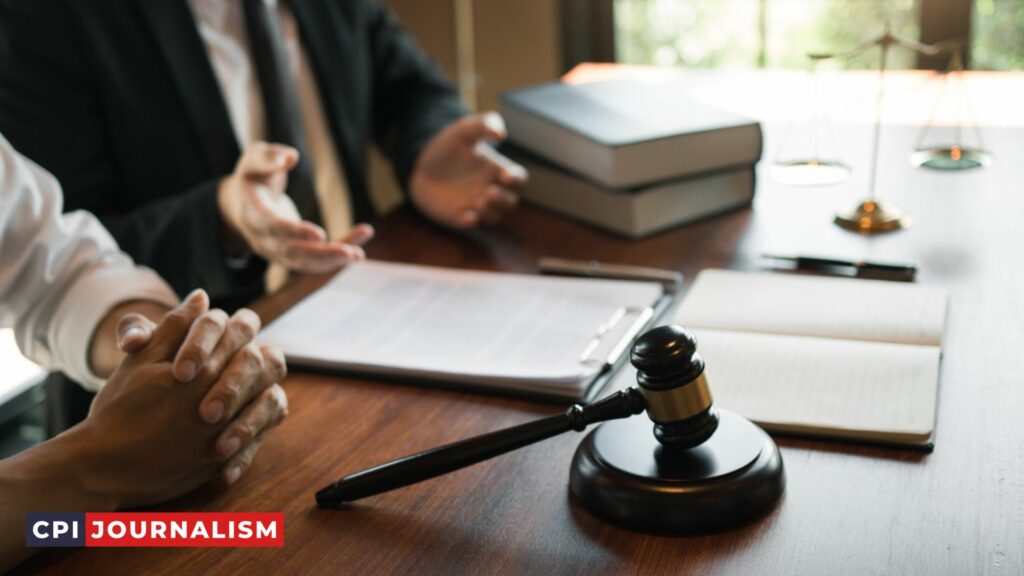
In order to avoid being sued for libel, journalists should always double-check facts before publishing them.
In addition to being aware of libel laws, it is also important to be aware of the possibility of a lawsuit. It is possible that a person or entity may sue a journalist for publishing an investigative article, and so it is important to be aware of this risk.
Journalists should be prepared to defend their work if necessary, and should never publish anything if they are unsure or uncertain about the accuracy of the information.
III. Conclusion
Investigative reporting is an important part of journalism, and it requires a unique set of skills and techniques to do it well.
Journalists must be able to identify and pursue stories, conduct interviews and research, write compelling and accurate stories, and use the latest tools and technology to tell the story.
This process requires a combination of creativity, persistence, and a willingness to take risks.
Ultimately, a journalist’s success in investigative reporting comes down to their story-telling and writing skills. A well-crafted story can have a powerful impact on audiences, and it is the journalist’s job to ensure that the story is told accurately and with integrity.
By understanding the fundamentals of storytelling and writing for investigative reports, journalists can create compelling and impactful stories that will stand the test of time.
A. Summary of Investigative Reporting
Investigative reporting is a type of journalism in which reporters use a variety of tools and techniques to uncover information that is not publicly available.
Investigative reporters spend a considerable amount of their time researching, interviewing sources, and analyzing data to create stories that have an impact.
The first step of investigative reporting is to identify a story. This means recognizing any discrepancies between public information and what is actually happening in the world.
Once the story is identified, investigative reporters use a variety of methods to uncover the truth.
This can include background research on the topic, using public records, interviewing sources, and analyzing documents.
The next step is to create a narrative. This involves piecing together the information gathered from the research and interviews to form a story. This story should have a clear beginning, middle, and end, and be written in a way that is engaging and informative.
Finally, investigative reporters must make sure that their stories are accurate, balanced, and well-sourced. This means verifying sources, fact-checking, and being sure to include multiple perspectives. Once the story is complete, it can be published in print, online, or broadcasted.
Investigative reporting is a complex and rewarding field. It requires journalists to be diligent and persistent, as well as creative in their approach to uncovering the truth. With the right tools and techniques, investigative reporters can create stories that have a lasting impact.
B. Benefits of Investigative Reporting
Investigative reporting can be a powerful tool for uncovering truths and bringing justice to the public. As a journalist, it is important to understand the benefits that come with investigative reporting.
First, investigative reporting can help to shine a light on injustices, corruption, and wrongdoings that would otherwise remain hidden. By uncovering potentially harmful information, investigative reporting can help to bring about needed change.
Second, investigative reporting can help to protect the public interest. It can provide citizens with the information they need to make informed decisions about the organizations and people that are impacting their lives.
Finally, investigative reporting can be used to hold the powerful accountable. It can help to ensure that those in positions of power are not using their positions to benefit themselves or their allies.
Investigative reporting is an important part of journalism, and it can be a powerful tool for uncovering truth and bringing justice to the public. As a journalist, it is important to understand the benefits that come with investigative reporting and to use it responsibly.
C. Impact of Investigative Reporting
As an experienced journalist, I can attest to the fact that investigative reporting has a great impact on society. It is a powerful tool for uncovering the truth about issues that are often hidden from public view or swept under the rug.
Through investigative reporting, journalists are able to shed light on issues that would otherwise remain in the dark, bringing them to the attention of the public and holding those responsible to account.
Investigative reporting has the potential to bring about significant and lasting change. It is often the catalyst for reform of laws and policies, as well as a means of exposing corruption and other unethical behavior.
In some cases, investigative reporting has even led to the downfall of powerful individuals and organizations.
Investigative reporting is also an important tool for informing the public. It helps people make informed decisions about their lives and the world around them. It also helps to create an informed electorate, which is essential for a healthy democracy.
Finally, investigative reporting is also a powerful tool for creating public awareness. It can bring attention to issues of social justice and inequality, helping to create a more equitable society.
For all these reasons, investigative reporting is a crucial part of democracy and the preservation of our basic freedoms. It is essential that journalists continue to pursue investigative stories and strive to uncover the truth.
IV. Resources
As a journalist, it is important to have access to resources that can help you in your investigative reporting.
Here are some of the most useful resources for investigative writing and storytelling:
1. Investigative Journalism Organizations: Organizations like the International Consortium of Investigative Journalists (ICIJ) and The Center for Investigative Reporting (CIR) are invaluable resources for investigative reporting. They provide resources, training, and support for journalists around the world.
2. Scholarly Journals: Scholarly journals like the Columbia Journalism Review and the Investigative Reporters & Editors Journal can provide valuable insight and guidance for investigative reporting.
3. Online Databases: Online databases like ProPublica, LexisNexis, and Google Scholar can be invaluable for researching and finding sources and data for investigative stories.
4. Investigative Reporting Books: Investigative books like “The Art of Investigative Reporting” by John Temple and “Investigative Reporting & Editing” by Brant Houston are essential reading for any journalist striving to perfect their craft.
5. Investigative Reporting Workshop: Participating in a workshop on investigative reporting is a great way to further develop your skills and knowledge. Workshops are often hosted by universities or investigative journalism organizations.
These resources can provide invaluable guidance, support, and insight into the investigative reporting process, and can help journalists hone their skills and perfect their craft.
A. Books
As an experienced journalist, I can tell you that books are an invaluable resource when it comes to investigative reporting. The best investigative reporters read extensively in order to stay up to date on the latest developments and stay ahead of the competition.
There are plenty of great books out there that can help you hone your skills in investigative reporting, but here are a few of my favorites:
1. “The Elements of Investigative Reporting” by Mike McBride is a must-read for any aspiring investigative journalist. This book provides an in-depth look at the techniques, tools and strategies used in investigative reporting.
It also dives into the ethical and legal considerations of the profession, and provides helpful advice on how to conduct research, navigate sources, and write compelling stories.
2. “The Investigative Reporter’s Handbook” by Brant Houston is another essential book for any investigative reporter.
This book provides a comprehensive overview of the principles and practices of investigative journalism, from finding stories and sources to writing, researching, and verifying.
It also covers the legal and ethical issues that come with investigative reporting, and offers tips on how to use digital tools and social media in the pursuit of truth.
3. “The Art of the Scoop” by Matthew S. Dallek is an excellent book for learning how to find those elusive stories.
This book covers the basics of investigative reporting, from finding and cultivating sources, to developing leads and pursuing stories.
It also provides tips and tricks for navigating the complexities of investigative journalism, and showcases case studies of some of the most successful investigative reporters.
These are just a few of the books that I highly recommend for aspiring investigative reporters. By reading widely and studying the best practices in the field, you’ll be well-equipped to find and tell stories that make a difference.
B. Websites
For investigative reporting, the Internet is an invaluable tool. Journalists should use websites to gather data, research topics, and access primary sources. Websites can provide an abundance of information, both factual and opinion-based, which can be used to build a comprehensive story.
When researching online, it is important to evaluate the credibility of the sources. Look for reliable websites with a good reputation and double-check facts and figures.
Additionally, journalists can utilize social media platforms, such as Twitter and Reddit, to seek out potential sources and locate information.
Aside from research, journalists should be familiar with content-building websites. WordPress, Medium, and Squarespace are popular content management systems that allow journalists to create and host their own websites.
These platforms are easy to use and provide the opportunity to build a professional-looking website that can be used to showcase articles and multimedia content.
Investigative reporters should also make use of data journalism tools, such as Jupyter Notebooks and Tableau. These programs allow journalists to visualize data and create interactive graphics to enhance their stories.
By incorporating data into their stories, journalists can make complex topics easier to understand and demonstrate their findings in a more compelling way.
C. Organizations
Organizations are often important players in investigative journalism. As a journalist, it is important to understand the roles of various organizations involved in the story, and how they may affect the outcome of the investigation.
For example, government agencies, non-profits, and special interest groups may all be involved in the story. It is important to understand how their agendas may affect the story, and to seek out sources from these organizations for accurate information.
Additionally, journalists should investigate the relationships between organizations involved in the story. It is important to be aware of any potential conflicts of interest that may arise from business relationships, or from organizations working in tandem to further a particular agenda.
These relationships can be difficult to uncover, but they are an important part of investigative reporting. Understanding the relationships between organizations can often be essential in understanding the full story.
Finally, it is important to remember that organizations are made up of individuals. It is essential to speak to individuals within the organization to get direct quotes and firsthand accounts.
This is critical to any investigative journalist’s work, as it can provide a behind-the-scenes perspective that is not available through official records.
D. Professional Organizations
For journalists looking to hone their investigative reporting skills, there are a number of professional organizations that are dedicated to promoting the highest standards of journalism and ensuring ethical practices in all areas of reporting.
The Society of Professional Journalists (SPJ) is a prominent organization which offers numerous resources, scholarships, and awards to help investigative reporters hone their craft.
Additionally, the Investigative Reporters and Editors (IRE) organization is dedicated to providing training and resources to investigative reporters, and has an extensive network of members who can be tapped for advice and support.
The Center for Investigative Reporting is a non-profit agency that provides investigative reporters with a wealth of resources, including access to investigative databases, online training opportunities, and mentorship programs.
Additionally, the National Institute for Computer-Assisted Reporting (NICAR) provides access to data and training for reporters who are interested in exploring the potential of computer-assisted reporting for investigative stories.
Finally, the Global Investigative Journalism Network (GIJN) is an international organization dedicated to promoting the highest standards of investigative reporting.
GIJN offers training programs, resources, and networking opportunities for those interested in exploring the field of investigative reporting.
By tapping into the resources offered by these organizations, journalists can gain a deeper understanding of the investigative reporting process and become more adept at writing compelling stories that resonate with readers.

